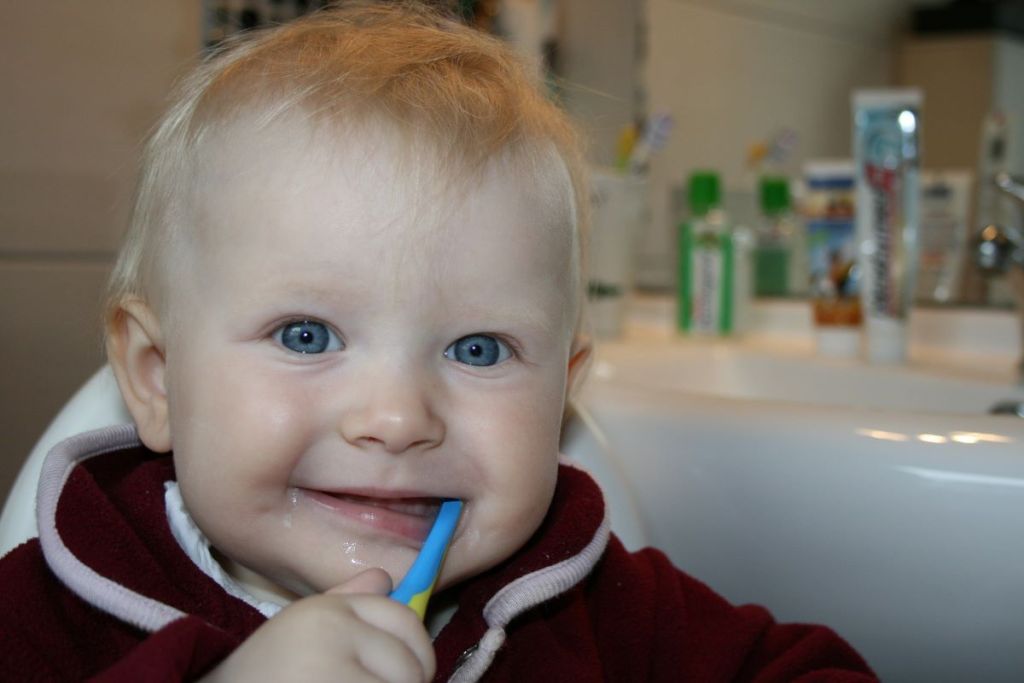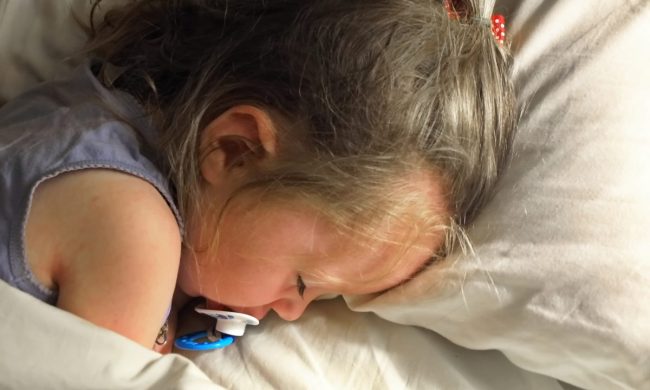When toddlers start teething, they experience a gamut of symptoms. In fact, they involve both physical and behavioral changes that occur during the teething phase. At the same time, the signs of toddler teething may be a bit challenging to diagnose for some parents, especially since they mimic other ailments. So, we’ve compiled a list of signs of teething in toddlers along with suggestions for keeping your little one comfortable during this difficult phase.
At what age does teething start?
Some babies start teething as early as 3 months. Most often, they start to drool more than usual, chew on their fingers, clothing, and toys while a few might display signs of discomfort.
However, at around 6 months, a baby’s nutritional needs and food preferences gradually change. Therefore, teething occurs in preparation for the transition from liquids to solid food.
While some babies have been known to cut their front teeth early, others experience their first tooth appearance later, right around 12 months of age. Therefore, teething generally occurs between the ages of 6 to 12 months. This continues until the child is about 36 months old when the last set of molars appears.

Signs and symptoms of toddler teething
Being aware of the age range for teething is important, but what’s vital to getting through this stage as smoothly as possible is recognizing the signs in toddlers and being able to tell the difference between a cold and teething. Here are a few to look out for.
A rash around the mouth, jaw, and neck
The excessive saliva that comes from drooling may make your toddler’s neck and chin area damp and, in some cases, even develop a rash.
Coughing
Because of the extra drooling, toddlers might start coughing or even gagging. There is no cause for alarm if your child starts coughing continuously without a fever present. Also, this type of cough is not persistent like that of a cold or croup.
Irritability
Toddlers tend to get restless during this phase which is normal. They might also become extra sensitive to outside stimuli, which can be attributed to the discomfort caused by the erupting tooth.
Ear rubbing
You may notice your toddler clenching their fists and constantly rubbing or pulling at their ears.
Although this action is often associated with an earache, what’s happening is that the jawbone or the inner ear is slightly irritated by the pain that occurs when your toddler’s back teeth are coming in. Furthermore, this won’t cause an ear infection, but if you’re concerned about any fluid in the inner ear or if your child develops a fever, you might call your pediatrician.
Changes in eating and sleeping
Some toddlers have also been observed to develop a disinterest in eating while and even having trouble sleeping for longer uninterrupted durations.
Symptoms that imitate the flu or other illnesses
It is, however, not normal for a baby who is teething to develop a high temperature, diarrhea, or loose stools, and a generalized body rash. These are not typical signs of teething and parents; guardians or caregivers are advised to seek medical attention in case these latter symptoms occur in a teething child.

How to alleviate discomfort associated with teething
Fortunately, you can take various steps to ease the discomfort and symptoms associated with toddler teething. Here are some tips that will take the stress away from teething.
Applying a soft, wet gauze
Rubbing a soft, wet gauze gently on a toddler’s gum helps them to cope with the discomfort. You can also try applying a small, clean, and cold spoon to numb the pain that accompanies toddler teething.
Brushing away the discomfort
A simple way to soothe the teething pain is to take a soft, cool, baby or toddler’s toothbrush and rub it gently on the gums. The bristles will soothe and massage the sore areas.
Over-the-counter remedies
When all measures have been exhausted or your toddler is running a fever, you can also try giving them an over-the-counter medicine, like acetaminophen (Tylenol) or ibuprofen (Advil). Either one will lower your child’s temperature and alleviate the gum soreness.
So, the mystery behind the signs of toddler teething has been removed. In addition to knowing what to look out for, you now have ideas for providing relief for your little one. There are two important facts to remember that will get you through this stage. First, your baby only goes through the teething phase just once. (You can rest easy because acquiring the adult teeth is relatively painless.) Secondly, of course, it doesn’t last forever. By the time your toddler hits age 3, they will likely have a full set of pearly whites.



